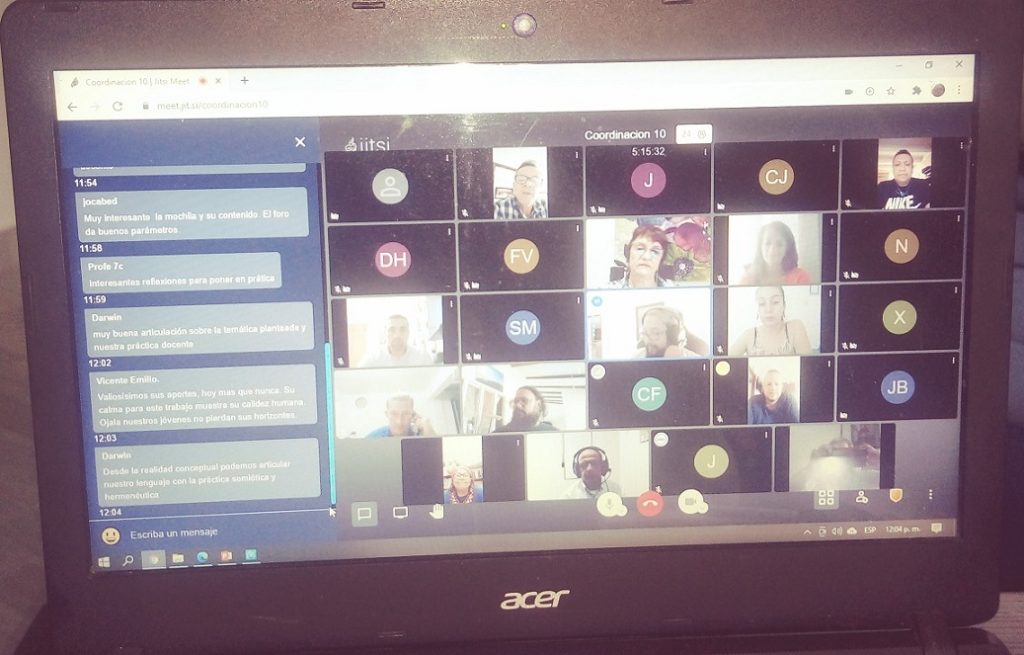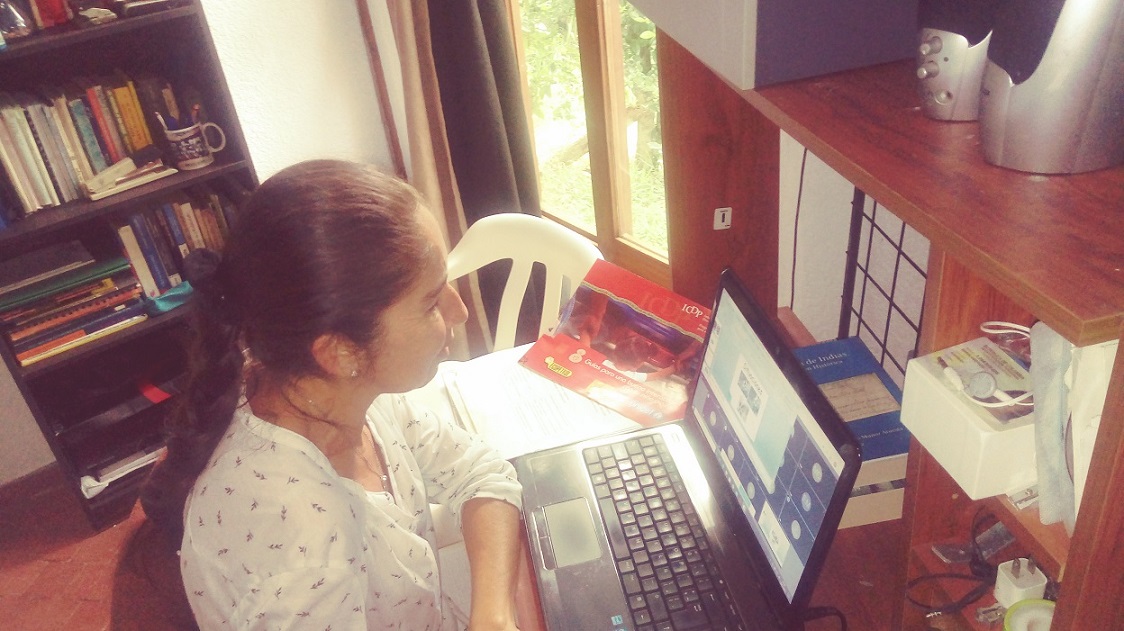This March 2021 update is based on the report by ICDP trainers, Anisah Andrade and Patricia Garcia, who have been working on the ICDP project for teachers since August 2020. Their project represents cooperation between ICDP Colombia and the Tebaida Education Institution, and it is funded by the SDIA organization.
The project’s objective is to transfer the ICDP methodology (at caregiver and facilitator levels) to teachers, in order to strengthen their capacity for establishing good quality interactions inside the classroom; to enable teachers to deliver the ICDP course to parents so as to enhance their parenting skills and sensitivity towards children; to promote in the educational community good coexistence and communication, through the application of the ICDP principles.
The ICDP training was initially aimed at primary school teachers, but there was a request to include secondary school teachers as well. The work was supposed to start in March 2020, but due to the COVID-19 pandemic this was not possible and the first activities began in August.
Since the planned workshops could not take place in person due to the government restrictions, trainers conducted weekly ICDP Reflection Forums via Zoom, each lasting one hour and a half. These virtual meetings were attended by two groups of teachers in the period between September and December 2020. One group was comprised of 19 primary school teachers and the other of 23 secondary school teachers.
The ICDP trainers soon realized that the teachers were experiencing high levels of stress.
“Due to the lockdown and the impossibility of face-to-face classes, teachers had to reorganize their work, develop new pedagogies, methodologies and technological tools. They had to prepare entirely new materials designed for children to learn each subject with the support of their parents. We soon realized that the educational system needed to guarantee not only the protection of the teachers’ jobs but that it was crucial it also took care of the teachers’ well-being, to help reduce levels of exhaustion and stress. As trainers we showed our appreciation and recognized the hard work that teachers had assumed during the pandemic, and we adapted our ICDP agenda in order to provide a special space for teachers to express themselves, talk about their situations and to give them emotional support.” – Anisah Andrade.
During the first three months in 2021, the ICDP trainers continued to conduct Zoom meetings with the two groups of teachers. During this period, they focused on the three ICDP dialogues and the eight guidelines for good interaction, which teachers explored, observing their own behaviour and sharing about their experiences in relation to school children and also the way they applied the three dialogues with their own children at home. Due to the pandemic, trainers could not carry out the planned filming of classroom interactions. However, the teachers made short films of interactions with their children at home and these provided material for sharing.
By the end of March 2021, the teachers were ready and keen to embark on their practical self-training projects. The primary school teachers will be delivering an ICDP course to parents and the secondary school teachers will give a course to adolescents. Each teacher was given the ICDP printed set of materials (”ICDP mochila”) and enough copies of the ICDP booklets to give to all the parents they are working with. The teachers will be facilitating parent groups in person and/or online, depending on how the pandemic evolves.

The importance of defining and seeing a child in a positive way was one of the topics that impacted the teachers – below are some of their examples and comments:
“I was told regarding the behaviour of a child who in the previous grade was with another teacher, that this child was distracted, unwilling to do things. I made a special effort to focus with him, and discovered how to motivate him. He became creative and sociable. I saw that he was quite capable and affectionate. All these qualities were before overshadowed by negative concepts.”
“We tend to take the first impression to quickly label children, parents and other people. But then trust is lost, so it is important to reconstruct concepts in a positive way and learn to see with different eyes, and to create more positive experiences.”
“Most teachers complained about a boy in grade 7. He was described as lazy, rude and was given many negative evaluations. This boy came to my class. I began to take him into account asking him to help me with other classmates. I soon discovered that he had a very evident ability, his creativity was very good at comic drawing, I saw a lot of talent, his grades improved and he became the best in the class.”

